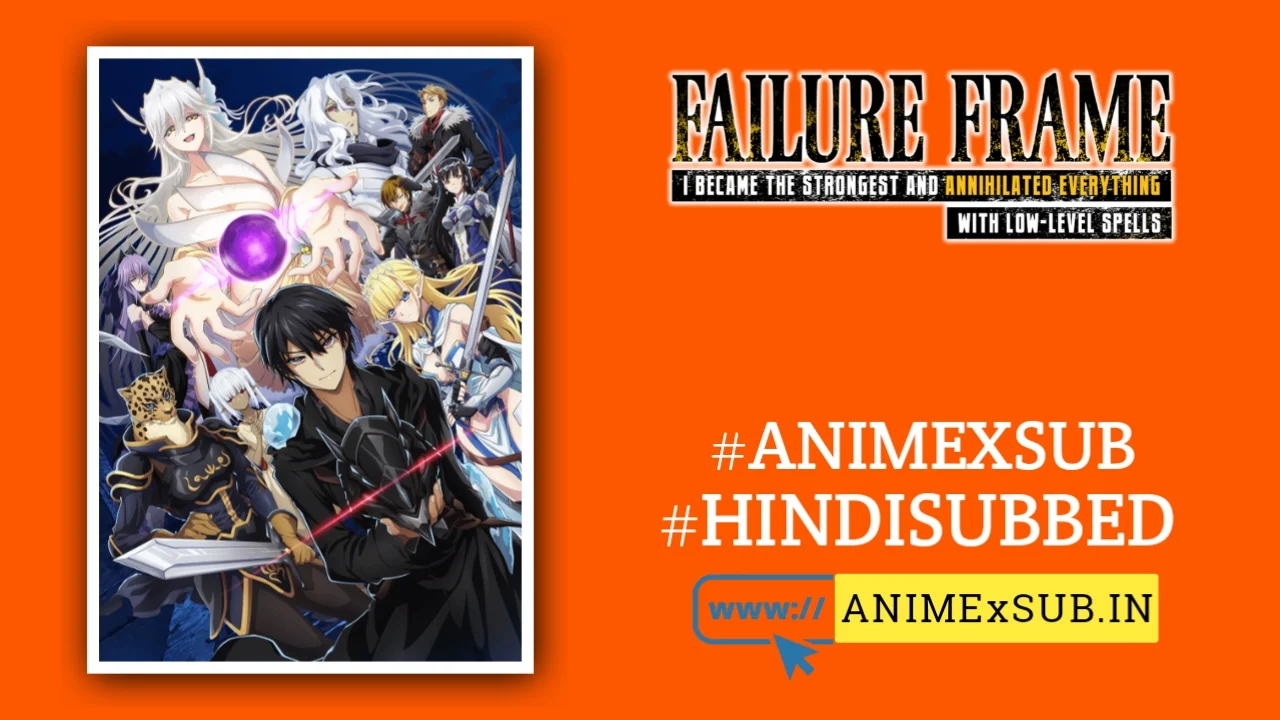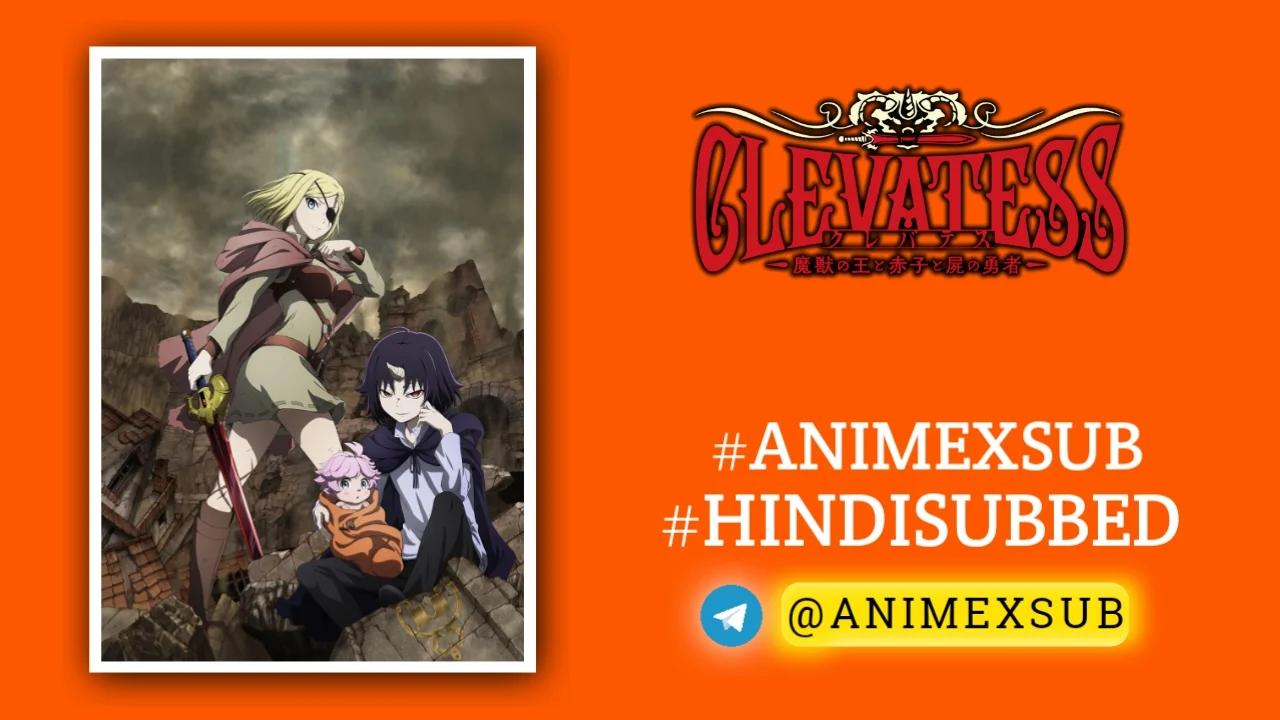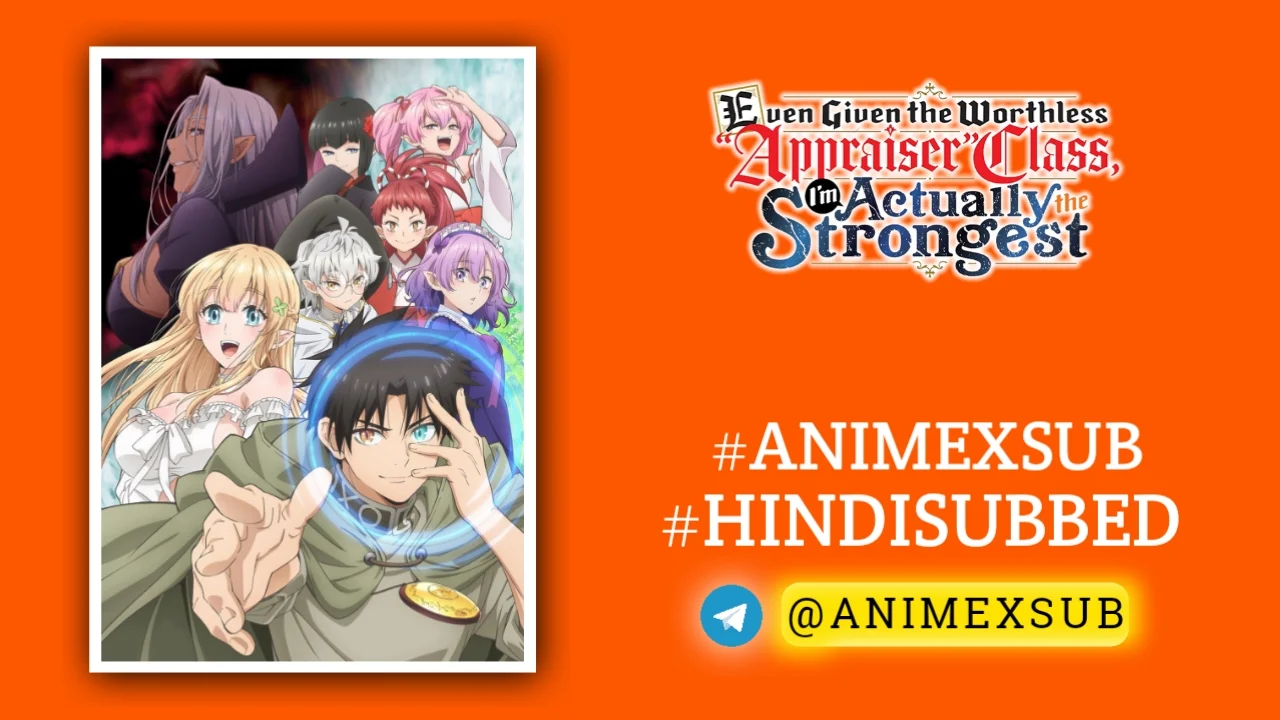
Failure Frame: I Became the Strongest and Annihilated Everything With Low-Level Spells Hindi Subbed [12/12] {Complete}
![Poster for Hazure Waku no [Joutai Ijou Skill] de Saikyou ni Natta Ore ga Subete wo Juurin Suru made](https://s4.anilist.co/file/anilistcdn/media/anime/cover/medium/bx173694-XcwGOMBxboOO.png)
Hazure Waku no [Joutai Ijou Skill] de Saikyou ni Natta Ore ga Subete wo Juurin Suru made
Failure Frame: I Became the Strongest and Annihilated Everything with Low-Level SpellsSynopsis
Touka always faded into the background at school. And when he’s summoned to another world with his classmates, that still doesn’t change! They all acquire top-rank skills, except Touka, who’s deemed a failure and cast to ancient ruins by the goddess Vicius. Turns out, his low-rank skills may not be so useless after all. Now, he seeks revenge against the goddess, and his true nature is revealed. (Source: Crunchyroll)
Watch Trailer
Characters
Echoes of Exile: The Summoning That Shattered Innocence
In the shadowed corridors of an ordinary high school classroom, where the mundane hum of teenage life drones on, lies the unassuming figure of Touka Mimori—a boy perpetually on the fringes, invisible to his peers, haunted by a childhood of abandonment and quiet resilience. This fragile normalcy erupts into chaos when a blinding light engulfs Class 2C, yanking them from their world into the opulent throne room of a divine entity. The goddess Vicius, her ethereal form radiating false benevolence, proclaims their purpose: to vanquish the Demon Lord’s encroaching darkness in her realm of Eäshen. Each student is appraised like prized artifacts, bestowed with ranks from S to A—flames of destiny igniting warriors, mages, and healers of unparalleled might. But for Touka, the appraisal yields a cruel verdict: E-rank, a “failure frame” of status ailment skills dismissed as parlor tricks unfit for heroism. In a moment of divine disdain, Vicius banishes him to the Ruins of Disposal, a labyrinthine abyss teeming with grotesque abominations, sealing his fate as expendable fodder. Here, in the suffocating depths where hope withers, the true odyssey ignites—not as a savior’s tale, but as a symphony of shadowed ascension, where the discarded becomes the devourer.
Whispers from the Abyss: Forging Power in the Ruins of Despair
Deep within the Ruins of Disposal, where jagged obsidian walls pulse with an otherworldly malice and the air reeks of decay, Touka confronts the raw brutality of survival. The monsters here are no mere foes; they are nightmarish amalgamations—hulking behemoths with tentacles that lash like living whips, spectral horrors that phase through stone, and swarms of chitinous insects whose venom corrodes flesh in seconds. What begins as desperate flailing evolves into a revelation: Touka’s E-rank skills—Paralysis, Poison, Sleep—are not weaknesses but weapons of insidious precision. Unlike the flashy spells of his classmates, these debuffs bypass defenses, infiltrating the nervous systems of beasts with unerring accuracy, their success rates defying the goddess’s scorn. As he slays and levels, his power surges exponentially, unlocking evolutions like Venom Prison, a miasmic cage that dissolves enemies from within, or Lethargy Bind, which ensnares foes in an unbreakable torpor. Yet this growth is no triumphant power fantasy; it’s a psychological crucible. Touka’s mind fractures under isolation, his once-submissive nature twisting into a calculated ruthlessness. He encounters Piggymaru, a sentient slime whose gelatinous form hides a cunning intellect, becoming his first ally in this hellish forge. Their bond, forged in mutual desperation, hints at themes of found family amid betrayal, but it’s Touka’s internal monologue—raw, unfiltered streams of vengeful resolve—that elevates the narrative. Never before has an isekai delved so viscerally into the psyche of the outcast, portraying level-ups not as euphoric highs but as addictive poisons that erode one’s humanity, setting the stage for a protagonist whose strength is as much a curse as a crown.
Fractured Alliances: Companions Born from Chains and Shadows
Emerging from the ruins, Touka reinvents himself as “Hati,” a masked wanderer whose unassuming demeanor conceals a predator’s gaze. His path intersects with Seras Ashrain, a disgraced elven knight captain imprisoned in a gladiatorial pit, her lithe form scarred by the whips of corrupt overlords who view her as a trophy to break. Rescuing her through a masterful application of his skills—poisoning guards into hallucinatory madness while paralyzing the arena’s beasts—marks the birth of an alliance laced with moral ambiguity. Seras, voiced with a steely vulnerability that captures her fractured pride, brings combat prowess and insider knowledge of Eäshen’s rotten nobility, but her loyalty stems from gratitude intertwined with fear of Touka’s darkening aura. Enter Eve Speed, the Leopardkin gladiator whose feral grace and golden eyes embody untamed fury; her backstory, a tapestry of tribal genocide by “holy” knights, mirrors Touka’s exile, forging a sisterly camaraderie that pulses with unspoken trauma. These relationships transcend typical harem tropes; they are power dynamics explored through psychological depth—Seras grapples with redemption, Eve with feral instincts tamed by purpose, and Piggymaru’s childlike curiosity providing levity amid the gloom. What makes this ensemble revolutionary is their agency: no blind devotion, but evolving pacts where trust is earned through shared vendettas, dissecting how isolation breeds not just strength, but interdependent shadows that could consume or elevate.
Veins of Vengeance: Navigating a World of Corrupted Thrones
Eäshen unfolds as a realm of deceptive splendor, where gleaming citadels mask a underbelly of systemic rot—kings who feast on the impoverished, knights who pervert “divine will” into orgies of violence, and a goddess whose summons are but a facade for her insatiable hunger for control. Touka’s journey weaves through forgotten fringes: mist-shrouded forests where ancient curses linger, underground markets teeming with black-market alchemists peddling forbidden elixirs, and the Golden-Eyed Monsters’ domain, a volcanic wasteland where aberrant creatures evolve in real-time, forcing adaptive strategies. His skills evolve innovatively—combining Sleep with Poison to create Nightmare Toxin, a debuff that induces fatal illusions—turning battles into cerebral chess matches rather than brute-force spectacles. Yet the true innovation lies in world-building layers unseen in prior isekais: political intrigue simmers as Touka manipulates noble houses, exposing how Vicius’s “heroes” are pawns in a divine game of favoritism, with Class 2C fracturing into rival factions led by arrogant S-ranks like Kirihara, whose hubris blinds them to the encroaching doom. Themes of injustice pulse through every vein—betrayal by supposed allies, the commodification of the summoned, and the illusion of heroism in a world where power corrupts absolutely—crafting a narrative that critiques not just fantasy tropes, but the very fabric of otherworldly exploitation, all while building toward a cataclysmic confrontation that redefines revenge as a philosophical reckoning.
Echoes of the Goddess: Moral Labyrinths and Unyielding Resolve
At its core, Failure Frame Season 1 probes the ethical quagmire of retribution: Is Touka’s ascent a justified rebellion or a descent into monstrosity? Vicius emerges not as a cartoonish villain, but a deity whose pettiness mirrors human flaws—her disdain for “failures” reflecting societal rejection, amplified to cosmic scales. As Touka closes in on her sanctum, his internal conflicts deepen; sparing a remorseful classmate or mercy-killing a corrupted beast forces viewers to confront the cost of power. The season’s pacing, a deliberate slow-burn, allows for these introspections, contrasting explosive dungeon crawls with tense infiltrations, culminating in a mid-season twist where Touka’s skills nearly backfire against a divine proxy, revealing vulnerabilities that humanize his god-like growth. Sound design amplifies this epic scope—the OST’s haunting choral swells during debuff activations evoke dread, while character themes blend orchestral fury with subtle melancholy. What sets this apart as next-level content is its unflinching purity: no sanitized heroism, but a raw exploration of trauma’s alchemy, where low-level spells symbolize overlooked potential in a trope-saturated genre, leaving audiences pondering if true strength lies in annihilation or transcendence.
Shattered Frames: Legacy of a Season’s Unfinished Symphony
As Season 1 fades to black, Touka stands at the precipice of divine war, his “failure” frame now a mirror shattering the illusions of heroism. This 12-episode odyssey, while marred by jarring CGI transitions that occasionally disrupt immersion—like abrupt shifts in character movements that feel like unfinished prototypes—transcends its flaws through narrative purity and thematic depth. It’s a review not of perfection, but of bold innovation: an isekai that weaponizes rejection into a epic of psychological warfare, where every poison dart and paralysis grip carves deeper into the soul than any sword. For devotees of dark fantasy, this is essential viewing—a unique epic that doesn’t just entertain, but challenges the very essence of summoned fates, promising echoes that resonate long after the credits roll.
![Character Touka Mimori from Hazure Waku no [Joutai Ijou Skill] de Saikyou ni Natta Ore ga Subete wo Juurin Suru made](https://s4.anilist.co/file/anilistcdn/character/large/b246652-Lw1l03jY21nT.png)
![Character Seras Ashrain from Hazure Waku no [Joutai Ijou Skill] de Saikyou ni Natta Ore ga Subete wo Juurin Suru made](https://s4.anilist.co/file/anilistcdn/character/large/b246647-B39KOSBscGHW.png)
![Character Kobato Kashima from Hazure Waku no [Joutai Ijou Skill] de Saikyou ni Natta Ore ga Subete wo Juurin Suru made](https://s4.anilist.co/file/anilistcdn/character/large/b339460-YCuMrIoCgxJn.png)
![Character Vicius from Hazure Waku no [Joutai Ijou Skill] de Saikyou ni Natta Ore ga Subete wo Juurin Suru made](https://s4.anilist.co/file/anilistcdn/character/large/b246651-6ZElcg4tvNEn.png)
![Character Itsuki Takao from Hazure Waku no [Joutai Ijou Skill] de Saikyou ni Natta Ore ga Subete wo Juurin Suru made](https://s4.anilist.co/file/anilistcdn/character/large/b339462-GSZ2S8Mt4J65.png)
![Character Takuto Kirihara from Hazure Waku no [Joutai Ijou Skill] de Saikyou ni Natta Ore ga Subete wo Juurin Suru made](https://s4.anilist.co/file/anilistcdn/character/large/b339459-TKdPv2WE2fkt.png)
![Character Ayaka Sogou from Hazure Waku no [Joutai Ijou Skill] de Saikyou ni Natta Ore ga Subete wo Juurin Suru made](https://s4.anilist.co/file/anilistcdn/character/large/b246650-7gh2tCVxARdB.png)
![Character Asagi Senjou from Hazure Waku no [Joutai Ijou Skill] de Saikyou ni Natta Ore ga Subete wo Juurin Suru made](https://s4.anilist.co/file/anilistcdn/character/large/b339458-UV5tNM2lk35M.png)
![Character Pigimaru from Hazure Waku no [Joutai Ijou Skill] de Saikyou ni Natta Ore ga Subete wo Juurin Suru made](https://s4.anilist.co/file/anilistcdn/character/large/b339455-f6qkoArM7zAd.png)
![Character Eve Speed from Hazure Waku no [Joutai Ijou Skill] de Saikyou ni Natta Ore ga Subete wo Juurin Suru made](https://s4.anilist.co/file/anilistcdn/character/large/b246648-HMF9esYjFWWC.png)
![Character Shougo Oyamada from Hazure Waku no [Joutai Ijou Skill] de Saikyou ni Natta Ore ga Subete wo Juurin Suru made](https://s4.anilist.co/file/anilistcdn/character/large/b339457-9wui2ptyhBeW.png)
![Character Nyantan Kikeepat from Hazure Waku no [Joutai Ijou Skill] de Saikyou ni Natta Ore ga Subete wo Juurin Suru made](https://s4.anilist.co/file/anilistcdn/character/large/b339582-DvLNQ7ObNoLR.png)
![Character Hijiri Takao from Hazure Waku no [Joutai Ijou Skill] de Saikyou ni Natta Ore ga Subete wo Juurin Suru made](https://s4.anilist.co/file/anilistcdn/character/large/b339456-fqiVtrqkusTv.png)
![Character Civit Garland from Hazure Waku no [Joutai Ijou Skill] de Saikyou ni Natta Ore ga Subete wo Juurin Suru made](https://s4.anilist.co/file/anilistcdn/character/large/b339583-g4zJxRfLBl2X.png)
![Character Tomohiro Yasu from Hazure Waku no [Joutai Ijou Skill] de Saikyou ni Natta Ore ga Subete wo Juurin Suru made](https://s4.anilist.co/file/anilistcdn/character/large/b339461-GxR79ItMsbpC.png)
![Character Lizbeth from Hazure Waku no [Joutai Ijou Skill] de Saikyou ni Natta Ore ga Subete wo Juurin Suru made](https://s4.anilist.co/file/anilistcdn/character/large/b339584-SzQEIC421qeB.png)





